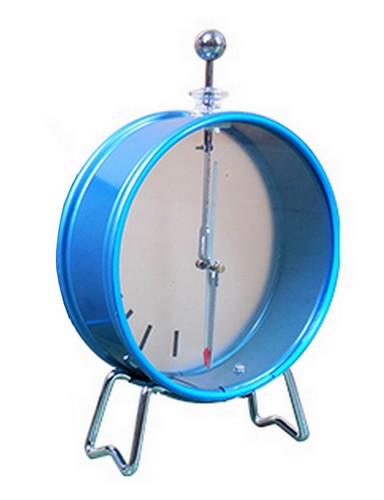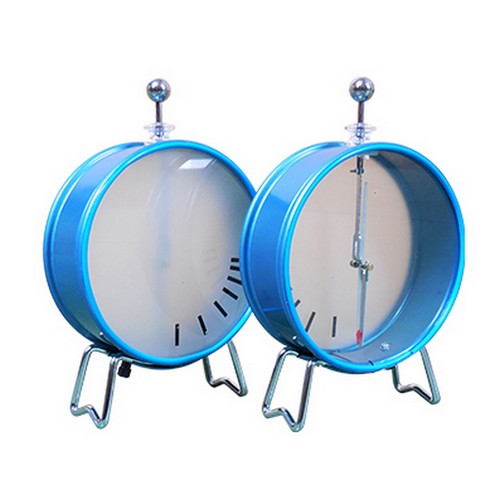Açıklama
- Ürün ECE kalite ve güvencesiyle ithalatımızdır
- Müfredatla uyumludur
- Statik elektrik deneylerinde kullanılmak üzere, cisimler üzerinde elektrik yükü olup olmadığını, varsa miktarını göstermek için tasarlanmış eğitim materyalidir
- Ürün ölçüleri: 26cm x 6.35cm x 17.5cm
- Ürünle birlikte kullanabileceğiniz ebonit ve cam çubuk setimizi incelemek için tıklayınız
- Ürünlerimizi TÜBİTAK, BİLSEM projelerinde ve kendi tasarımlarınızda güvenle kullanabilirsiniz
Hedeflenen Kazanımlar:
- Bazı maddelerin veya cisimlerin birbirlerine temas ettirildiğinde elektriklenebileceğini fark eder.
- Aynı yolla elektriklendikten sonra aynı cins iki maddenin birbirlerini dokunmadan ittiğini, farklı cins iki maddenin ise birbirlerini dokunmadan çektiğini deneyerek keşfeder.
- Deneysel sonuçlara dayanarak iki cins elektrik yükü olduğu sonucuna varır.
- Elektrik yüklerinin pozitif (+) ve negatif (-) olarak adlandırıldığını belirtir.
- Aynı elektrik yüklerinin birbirini ittiğini, farklı elektrik yüklerinin ise birbirini çektiğini ifade eder.
- Negatif ve pozitif yüklerin birbirine eşit olduğu cisimleri, nötr cisim olarak adlandırır.
- Yüklü bir cismin başka bir cisme dokundurulunca onu aynı tür yükle yükleyebileceğini ve bu cisimlerin daha sonra birbirini itebileceğini deneyerek keşfeder.
- Elektriklenme olaylarında cisimlerin negatif yük alış-verişi yaptığını ve cisimler üzerinde pozitif veya negatif yük fazlalığı (yük dengesizliği) oluştuğunu ifade eder.
- Elektroskopun ne ise yaradığını, tasarladığı bir araç üzerinde gösterir.
Yüklü cisimlerden toprağa, topraktan yüklü cisimlere negatif yük akısını “topraklama” olarak adlandırır. - Cisimlerin birbirine dokundurulmadan etki ile elektriklenerek zıt yükle yüklenebileceğini deneyerek keşfeder.
- Elektriklenmenin teknolojideki ve bazı doğa olaylarındaki uygulamaları hakkında örnekler vererek tartışır.
- Elektrik yükünün özelliklerini açıklar.
- Elektrikle yüklenme olayını açıklar ve farklı tür maddelerin elektrikle yüklenmelerini karşılaştırır.
- Elektriklenen iletken ve yalıtkanlarda yüklü parçacıkların hareketini ve yük dağılımlarını karşılaştırır.
- Yüklü cisimler arasındaki etkileşimi açıklar.



 İçbükey Ve Dışbükey Çukur Ve Tümsek Ayna Seti 5cm Çapında Tıraşlı
İçbükey Ve Dışbükey Çukur Ve Tümsek Ayna Seti 5cm Çapında Tıraşlı 






İncelemeler
Henüz yorum yapılmadı.